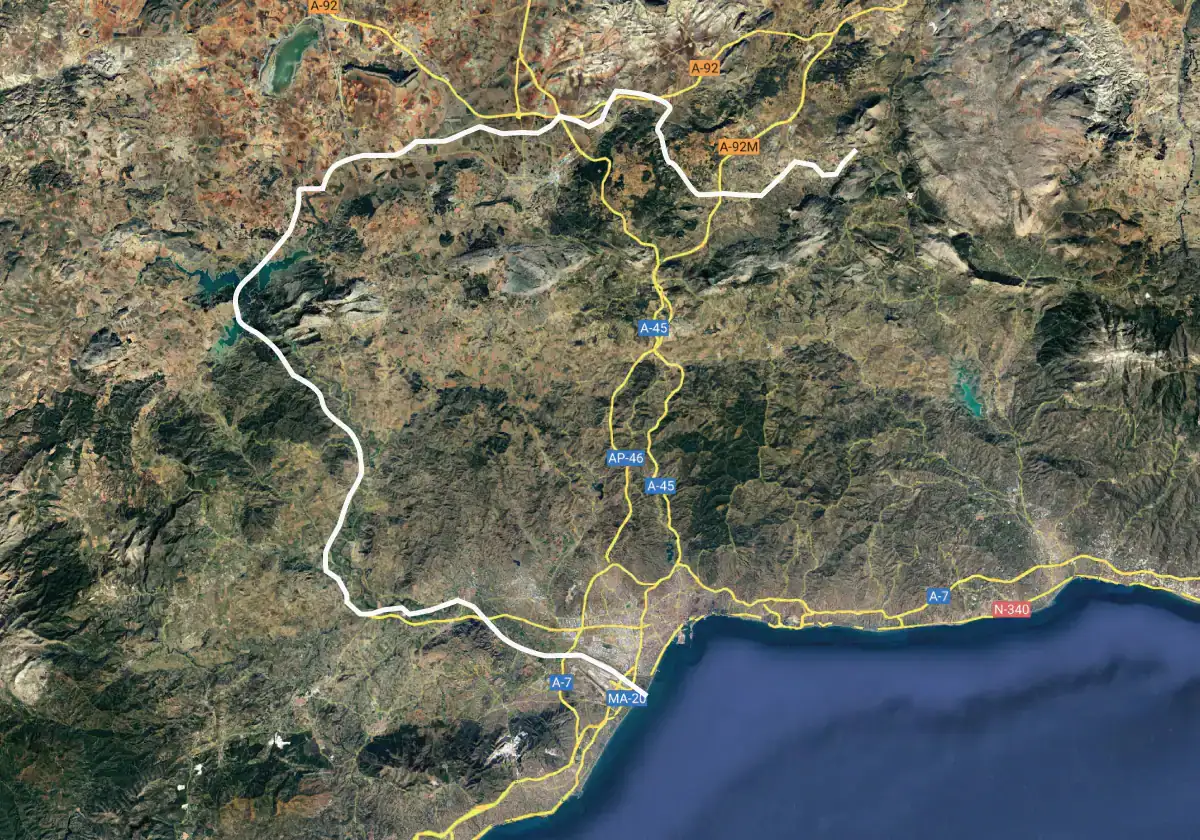This is the 'water highway' that could put an end to the drought crisis in the northern part of Malaga province
The world's largest olive oil producer is championing a 700-million-euro project to pump water that is dumped in treatment plants in Malaga, due to a lack of infrastructure to process it, through a 120-kilometre pipeline
Matías Stuber
Malaga
Monday, 4 March 2024, 17:20
The president of the world's largest olive oil producer is urging authorities to consider a water project which he believes will end the drought crisis in the northern part of Malaga province.
In an interview with SUR, Dcoop president Antonio Luque detailed plans he and the rest of the so-called Dcoop irrigation community - made up of some 900 farmers - drew up for a so-called "water-highway". The group measured 60 cubic hectometres of water is being dumped into the sea by treatment plants in Malaga each year due to a lack of infrastructure to process the water and direct it to areas where it's needed.
Luque and the Dcoop irrigation community are proposing this water should instead be pumped into dry areas of the northern part of Malaga province via 120 kilometres of pipelines that would guarantee the irrigation of 33,000 hectares. It would cost between 700 and 750 million euros. "Who is going to say no to a project that would guarantee our future," Luque told SUR.
Who would pay for the project?
"Technically, it is viable," said the manager of Agri-food Cooperatives, Carlos Cinta, who believes the project can be "a solution to the problems of drought for an entire region". When asked how to pump the water, Cinta said everything had been studied: "The idea is to take the route along the Ribera del Guadalhorce. Initially, we would use a one-metre diameter pipe. But the ideal would be to lay two, so that the other pipe could be used to bring water for human consumption to the entire northern part of the province. As long as that water is not needed, we would use that second pipeline anyway. It would allow us to pump the water at lower pressure and thus save energy," Cintas said.
Asked who is going to finance the project, Cintas pointed to the administrations. "There are more than enough reasons. Firstly, for the social good of the project. It would benefit our farmers and their ailing economy and would help to recover the state of our aquifers," Cintas added.
Support
The project has the backing of various mayors in the province following questions from SUR. Antequera mayor Manuel Barón expressed his full support for the idea. "It would benefit the province and the whole of Andalucía," he said. The mayor of Villanueva de Algaidas Juan Cívico pointed out the project would protect the municipality's economy as agriculture accounts for 80% of it.
Alameda councillor Juan Antonio Rodríguez told SUR "this project does not understand political colour". However, he added the Dcoop project is "very good from an ecological point of view, as it also helps to recover the aquifers".
